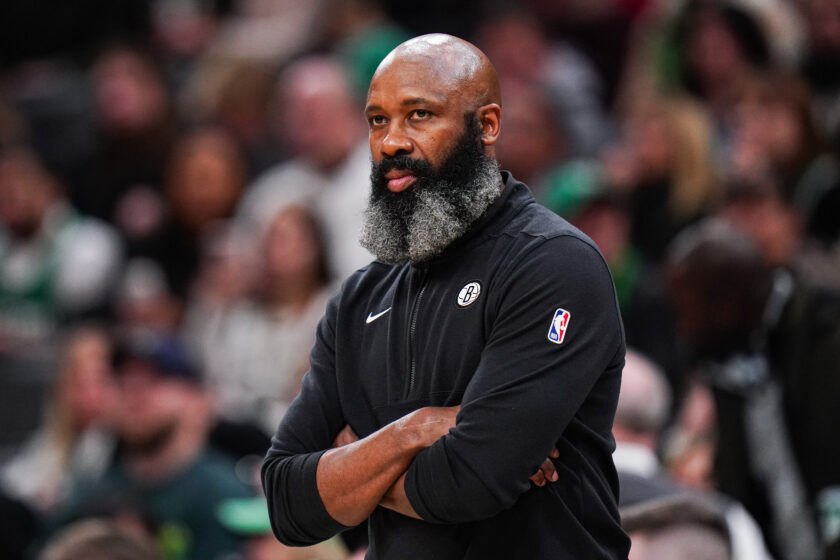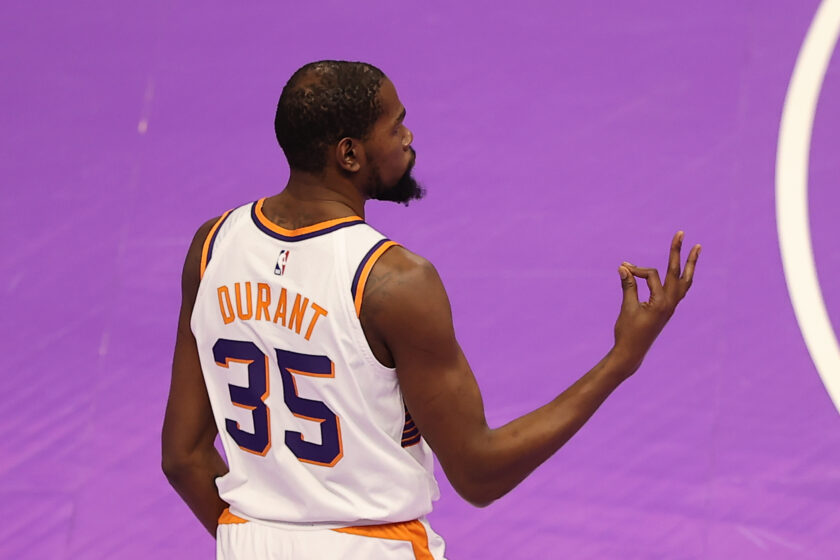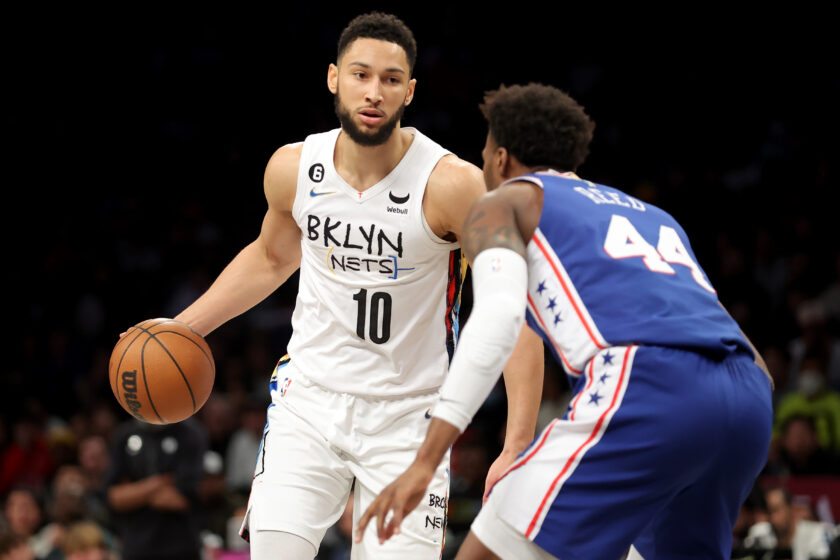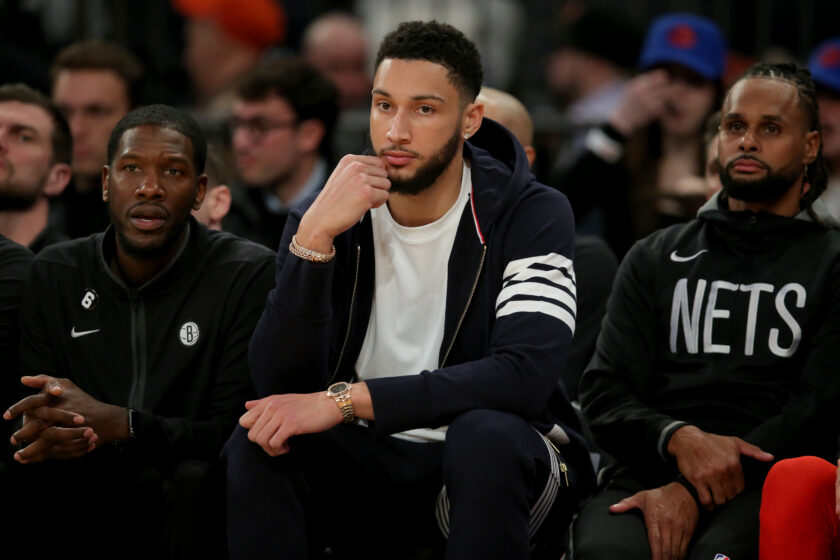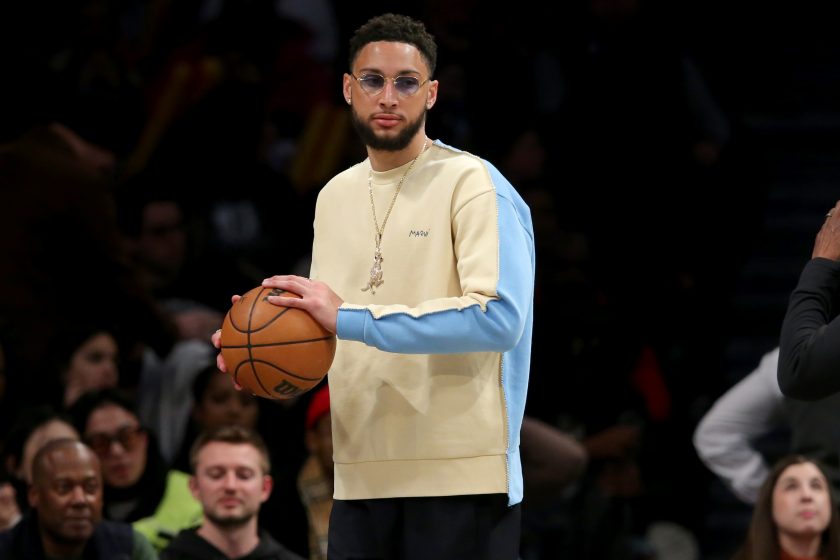Brooklyn Nets without Caris LeVert: Just how bad has it been?
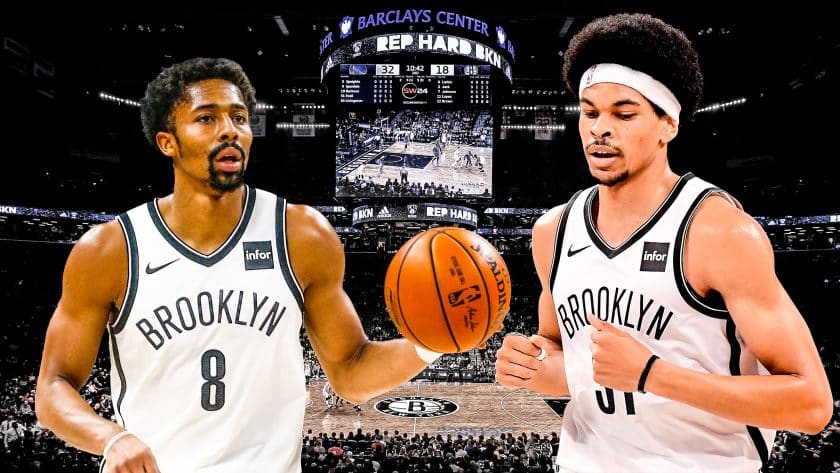
The Brooklyn Nets are currently on a league-worst six-game losing streak and have looked incompetent down the stretch without Caris LeVert.
One of my favorite songs from 2018 is by the bubbling Hell’s Kitchen emcee, Marlon Craft. The song is titled “Ain’t With Today,” and in the second verse of the record, the New York native shares his struggles while working in the music industry. Craft feels that he’s better than most of his contemporaries, and argues that he puts forth more effort and heart into his music. Marlon feels that he is underappreciated for his craft (no pun intended) and spits …
“I do what They don’t do and I get less credit for it. I do what they won’t do and I get less cheddar for it.”
He continues, spilling that the lack of recognition led to a sense of helplessness and depression. Marlon Craft asks the listener …
“What you know about crying in the bathroom, scared you ain’t gonna make it?”
In the bridge of “Ain’t With Today,” Craft shares how a Knicks loss at the buzzer and a poorly-made recipe have been the biggest things on his mind. What follows is the catchy hook of this anthem, where Craft shows his disdain for the world and chants …
“I ain’t with today, no, no, no!”
The point of this song, to me at least, is that a stressful event can adversely affect all parts of one’s well-being. Craft’s inability to break into the music industry puts him in a pessimistic space of mind, and as a result, he takes the smaller, more trivial things to heart too much (such as a loss at the buzzer by his favorite basketball team). This explains the repetition in the hook; every morning that Craft wakes up, he feels poorly about himself and sees the world in a cynical light. His anger and frustration with the music industry boils over, causing him to only recognize the bad parts of his daily life.
This song is brutally honest, which is one of the reasons I love it so much. More importantly, it’s undeniably relatable. We all go through bad days, but in the midst of stressful times, those bad days can turn into weeks.
I’ve been listening to this song a lot the past two weeks because, to be honest with you, there’s something that has really been getting me down …
Whenever I turn on the television to watch my Brooklyn Nets, I go through the same thing: heartbreak and hopelessness. Over and over again.
[sc name=”Nets Center” ]It’s been nearly three weeks since the star of the Brooklyn Nets, Caris LeVert, dislocated his ankle. Brooklyn’s performance on the court since LeVert’s injury have been worthy of many words; good (hell, even decent) would not be among them.
Since that fateful night on Nov. 12, the Brooklyn Nets have gone 2-9 and are currently on a league-worst six-game losing streak. The Nets have looked hopeless without their star, lacking the identity on the court that made them one of the brightest young teams in the league for the first month of the season.
Even though LeVert was the team’s best one-on-one defender, their overall defense hasn’t taken much of a hit. With LeVert on the floor, they were the 24th-ranked defense with a 110.2 defensive rating. Since losing him, the Nets have maintained that below-average defense with a 110.6 defensive rating.
Glancing at the team’s points per game, you’d assume that the Nets haven’t felt his loss on offense either. When LeVert was playing, the team averaged 109.1 points per contest. Since losing him, the Nets have mustered a 108.9 per game effort. Again, not a huge change here.
Looking at the advanced numbers, however, you’ll notice a massive drop-off. Before November 12th, the date of LeVert’s injury, the Nets’ offensive rating was 109.8; good for ninth in the league. Since then, that ninth-ranked offense has dropped to twenty-third. Given that their per-game scoring numbers have remained fairly stable over this stretch, how is it that Brooklyn’s offensive rating has slipped so much?
Early in the season, I wrote about Brooklyn’s predictable offense down the stretch.
[sc name=”Nets Link Related” link=”https://elitesportsny.com/2018/11/10/brooklyn-nets-learning-how-to-finish-strong-is-the-next-step/” text=”Brooklyn Nets Need To Finish Strong” ]On the very same date that I published that piece, Caris LeVert sank a clutch game-winner against the number one team in the Western Conference (at that time): the Denver Nuggets. The feeling across the Nets’ fan base was mutual: we might have found our guy.
Four short days later, this happened, and those feelings of tempered optimism were suddenly gone. Brooklyn’s rise was quick and unexpected; their downfall was swift and agonizing.
The post-LeVert Brooklyn Nets have been reminiscent of a music group that I used to love in my younger years: Slum Village. Slum Village was one of the better hip-hop acts coming out of Detroit and was led by the rhyme-slayer, Elzhi. However, in 2010, Elzhi left the group. Slum Village has continued to produce music since his exit, however, these efforts have missed the mark. That’s how the Nets have felt these past two weeks. Yeah, the majority of the group is still there. But when the spotlight gets bright, the team is missing that star-power that made them special.
But enough of these frivolous sports-to-music comparisons. Let’s get into the game tape.
The Nets have seen a major slip in offensive rating without a huge loss in per-game scoring. If you’ve watched the Nets recently, you’ll be more than aware of the team’s uncanny ability to blow seemingly safe leads. They’ve been good at this. (Sigh), really good.
Surprisingly, as bad as the team has appeared in the fourth quarter, their numbers don’t necessarily show it. With LeVert on the floor, the Nets averaged an impressive 28.1 points in the fourth. Since his injury, that number has only slightly fallen to 27 points.
However, when we look at clutch scoring, this is where things get interesting. For reference, the “clutch” is defined as NBA games with a five-point differential in the last five minutes (according to NBA.com).
When LeVert was on the floor, the team was elite at scoring in the clutch, ranking fifth in the league with 11.5 points per game (per NBA.com). With him off it, that flowing source of scoring has dried up, and the team is now averaging a pitiful 5.4 points per contest. Over a full season, this would place them 27th out of 30 teams alongside bottom-feeders such the Pheonix Suns and the Cleveland Cavaliers. (Both of these teams are last in their conferences and have eight wins on the season… combined).
| POINTS SCORED IN CLUTCH | RATING (out of 30 teams) | CLUTCH FG % | RATING (out of 30 teams) | CLUTCH 3P % | RATING (out of 30 teams) | |
|---|---|---|---|---|---|---|
| BROOKLYN NETS (10/17-11/12) | 11.1 | 5th | 51.9% | 2nd | 44% | 5th |
| BROOKLYN NETS (11/13-PRESENT) | 5.4 | 27th | 27.5% | 28th | 25% | 22nd |
Their field-goal percentage has nearly been cut in half, as the team has tumbled from 2nd to 28th out of thirty teams. With LeVert in the lineup, the Nets’ three-point percentage as a team bears resemblance to Joe Harris or Danny Green in terms of levels of efficiency. With him off it, things start to mirror the shooting performance of DNP-collector, Frank Ntilikina.
Down the stretch, they’ve missed a multitude of shots they would normally make.

There’s nothing wrong with this type of offense. Considering that Harris is a league-leader in high-volume catch-and-shoot three-point shots, this is probably one of the most statistically efficient opportunities on the court.
There are, however, a couple of areas that the Nets need to clean up. The first is turnovers.

The Nets have been coughing up the ball at the most inopportune moments of games. The team has seemed tense and out of sync when the lights get bright. As a result, many passes have been mistimed or off the mark. The most puzzling has been their inability to inbound the ball from the sideline.
The last three clips are great examples of the Nets’ inability to work together as a team. Inbounding the ball shouldn’t be this hard, and these plays have been killing the Nets. In the game against the Grizzlies, Memphis took full advantage of Brooklyn’s inbounding ineptitude by sticking it to them on the other side of the court. (Thanks to rookie stud, Jaren Jackson Jr., and his monster three-pointer to send the game to overtime). In the case of the game against the Jazz, it was Jared Dudley’s inbounding blunder that was the final nail in the coffin.
Another big problem for the team has been Rondae Hollis-Jefferson’s ballhandling. In the last five minutes of close games, Hollis-Jefferson has seen the ball slip from his hands, time and time again.

Hollis-Jefferson has thrown care into the wind when it comes to taking care of the ball. He’s attempted ill-advised crossovers, reckless spin moves, and idiotic one-handed passes. The results have been pretty conclusive; whether it be dribbling the ball off his leg, moving his pivot foot, or dropping the ball out of bounds, Hollis-Jefferson has been killing Brooklyn with audacious flair. Hollis-Jefferson’s perception of his ball-handling skill is, perhaps, a little misguided. (Perhaps he should look into his 33.3% crunchtime turnover percentage). For a team that struggles to score so much down the stretch, it is imperative that Hollis-Jefferson holds onto the ball as his life depends on it.
This leads us nicely into the Nets biggest issue down the stretch. With LeVert out of the picture, the de-facto role of late-game scorer has to belong to someone on this Nets roster. Unfortunately for the Nets, the next man up has filled this role poorly, at best. This pains me to say because… I really like this guy. He’s a hard worker who, much like the rest of his teammates, defied the odds into becoming a very good NBA player.
With that said, Spencer Dinwiddie’s shot selection has been downright atrocious down the stretch.

In the clutch of the last eleven games, Spencer Dinwiddie has shot 23% from the field and only 20% from three. As seen in the video above, in many plays, Dinwiddie has waived off incoming big man screens and has gone into isolation mode. In other games, he’s heaved up nearly impossible shots. The best example was his turnaround fade-away three-pointer against the Grizzlies in double-overtime. (You really mean to tell me that with 15 seconds remaining, this is Brooklyn’s best possible shot?! I screamed out loud when this play happened in real-time).
[sc name=”Nets Link Related” link=”https://elitesportsny.com/2018/11/17/brooklyn-nets-dangelo-russell-team-without-caris-levert-film-room/” text=”The Inefficiencies Of D’Angelo Russell ” ]I attended both home games against the Minnesota Timberwolves and the Utah Jazz. In both games, the stadium was buzzing as Brooklyn was in the midst of an exciting late-game run. However, that enthusiasm was quickly hushed as Dinwiddie pulled up for a pair of low-percentage hero-ball threes (as seen in the video above). Trust me when I say this: Dinwiddie has been sucking the life out of the Barclays Center crowd for weeks.
While I do applaud Dinwiddie for his Mamba Mentality, his results have looked a little more 1997 Kobe than 2009 Kobe.
A strong case could be made that it should be D’Angelo Russell taking these crunchtime shots. He’s a much better long-range shooter and is pretty clutch for the most part. He almost single-handedly won the game against the Grizzlies in the double-overtime period:

There’s one problem with D’Angelo Russell.
A couple of weeks ago, I wrote about D’Angelo Russell’s inability to draw fouls and finish inside.
These limitations are only magnified down the stretch. D’Angelo Russell isn’t an explosive player whatsoever, and his at-rim finishing is rudimentary at best. The fourth-year player isn’t very graceful around the rim, and this is best seen in that same double-overtime period against the Grizzlies, just a few possessions after his step-back threes.

This limitation is a big one, and it’s why the Nets have shied away from Russell in the big moments. If the open three-pointer isn’t available, Russell’s only alternative on offense is a long pull-up two. These type of shots are exactly what defenses want; they are inefficient, statistically speaking.
Until Russell becomes more well-versed on offense, the team will be forced to put the ball in Spencer Dinwiddie’s shot-happy hands. All signs point to this continuing to hurt the Nets. On this roster, he’s probably the closest thing to a number one guy in the clutch. In reality, he’s an off-the-bench sparkplug miscast as a star player.
[sc name=”Nets Link Next” link=”https://elitesportsny.com/2018/11/30/brooklyn-nets-hc-coach-kenny-atkinson-must-find-way-stop-losing/” text=”Kenny Atkinson Must Stop The Losing Immediately” ] [sc name=”Nets Footer”]An NBA fanatic who specializes in the advanced analytics of the game. I cover the Brooklyn Nets here in the city. Follow me on Twitter for semi-witty basketball tweets. @MattBrooksNBA

